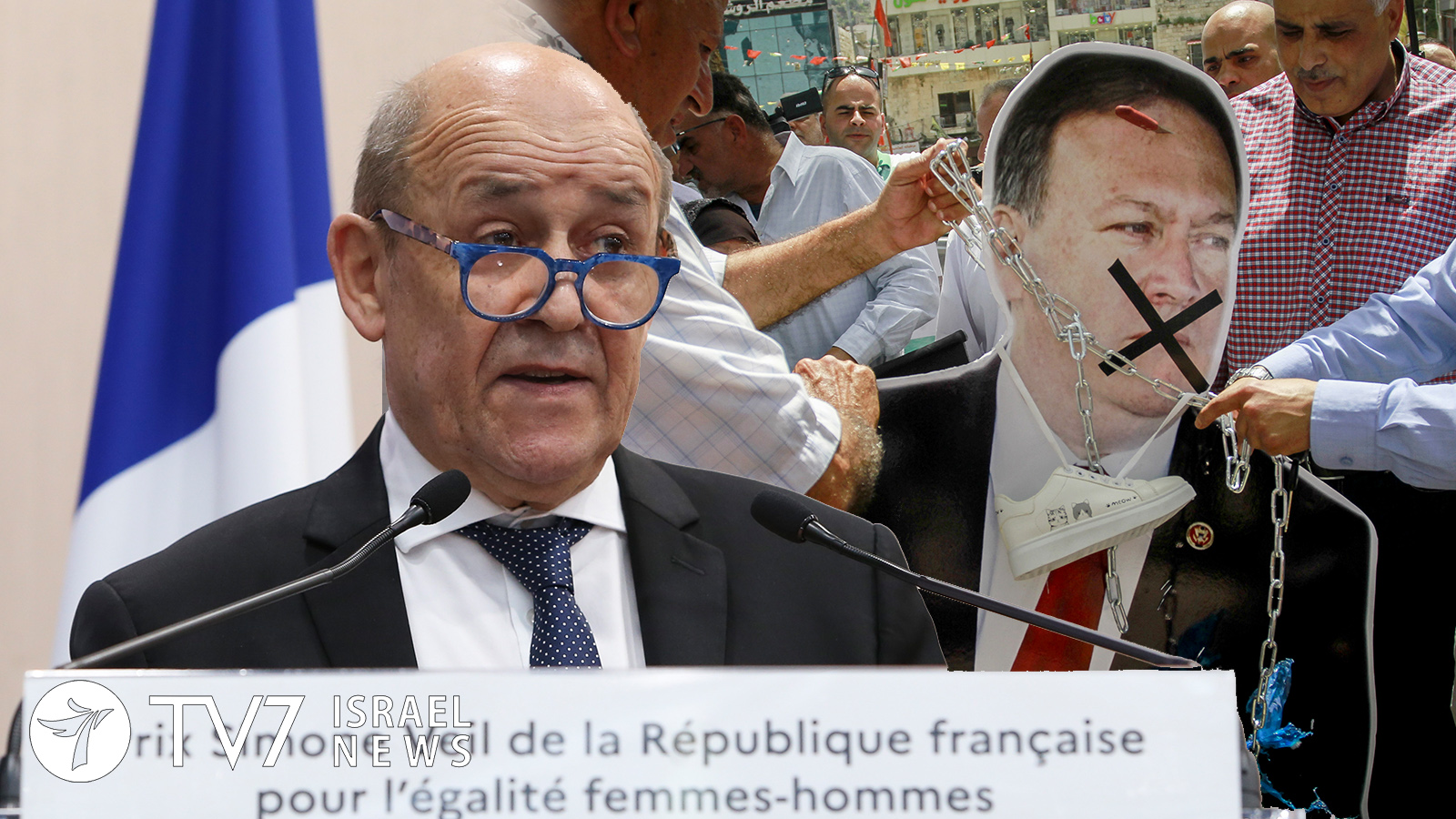French Foreign Minister Jean-Yves Le Drian cautioned Israel to not follow through on its declared aspiration of asserting sovereignty over significant parts of the West Bank.
During a parliamentary session in Paris, Le Drian condemned terms of the coalition deal of Jerusalem’s newly established unity government detailing a process to begin 1 July toward annexation of areas the Biblical territory known as Judea and Samaria, including the Jordan Valley, “under the condition that the United States’ sentiment is solicited.”
“This would be extremely damaging; and for us, would constitute a serious violation of all the justifications of an occupation of this or that territory by force, which is not acceptable for us, on one hand, and on the other hand, it puts into question the Two-State solution and the search for a sustainable peace in an irreversible manner,” said the French top diplomat.
He further revealed that France has held “several video conferences with colleagues” such as Italy, Germany, Spain, Luxembourg, Ireland and others he declined to mention, to devise a “joint preventive action – and eventually a reprisal if such a decision were taken.”
The evident threat by the French Foreign Minister follows a United Nations Security Council teleconference in which its Mideast envoy declared realization of the Jerusalem’s plan would ultimately end prospects of the international community’s own strategy to resolve the Israeli-Palestinian conflict.
“The continuing threat of annexation by Israel of parts of the West Bank would constitute a most serious violation of international law, deal a devastating blow to the Two-State solution, close the door to a renewal of negotiations and threaten efforts to advance regional peace and a broader effort to maintain international peace and security,” proclaimed the U.N.’s Special Coordinator for the Middle East Peace Process, Nickolay Mladenov.
After insisting that “Israel must abandon the threat of annexation,” Mladenov added that “the Palestinian leadership must re-engage with all members of the quartet,” concluding that “Everyone must do their part.”
In what was widely interpreted as a rebuke, U.S. Ambassador to the U.N. Kelly Craft responded that “What is needed right now – if we hope to take even a first step in the right direction – is for the parties to sit down with one another.”
“This Council cannot dictate the end to this conflict,” said Washington’s envoy to the world body, stressing that “We can only encourage the parties to sit down to determine how they wish to make progress.”
